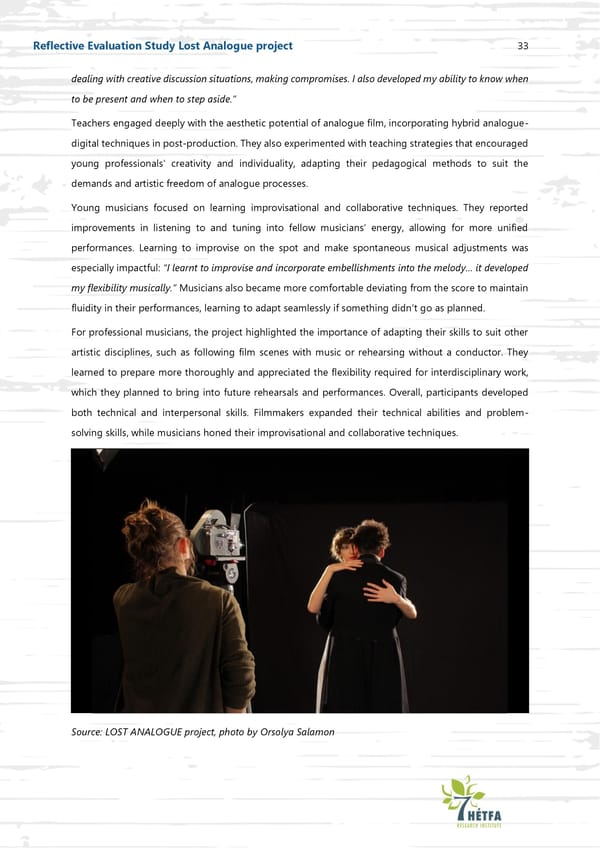33 Reflective Evaluation Study Lost Analogue project dealing with creative discussion situations, making compromises. I also developed my ability to know when to be present and when to step aside. Teachers engaged deeply with the aesthetic potential of analogue film, incorporating hybrid analogue - digital techniques in post - production. They also experimented with teaching strategies that encouraged young professionals creativity and individuality, adapting their pedagogical methods to suit the demands and artistic freedom of analogue processes. Young musicians focused on learning improvisational and collaborative techniques. They reported improvements in listening to and tuning into fellow musicians energy, allowing for more unified performances. Learning to improvise on the spot and make sponta neous musical adjustments was especially impactful: I learnt to improvise and incorporate embellishments into the melody... it developed my flexibility musically. Musicians also became more comfortable deviating from the score to maintain fluidity in their performances, learning to adapt seamlessly if something didnt go as planned. For professional musicians, the project highlighted the importance of adapting their skills to suit other artistic disciplines, such as following film scenes with music or rehearsing without a conductor. They learned to prepare more thoroughly and apprecia ted the flexibility required for interdisciplinary work, which they planned to bring into future rehearsals and performances. O verall, participants developed both technical and interpersonal skills. Filmmakers expanded their technical abilities and problem - solving skills, while musicians honed their improvisational and collaborative techniques. Source: LOST ANALOGUE project, photo by Orsolya Salamon
 Celluloid Connections: Cultivating creative skills through analogue film and musical collaboration Page 33 Page 35
Celluloid Connections: Cultivating creative skills through analogue film and musical collaboration Page 33 Page 35